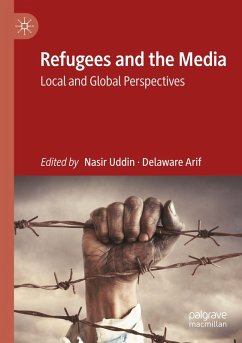
Identity Politics
Versandkostenfrei!
Versandfertig in 6-10 Tagen
49,99 €
inkl. MwSt.

PAYBACK Punkte
25 °P sammeln!
Identity politics refers to political arguments that focus upon the self interest and perspectives of social minorities, or self-identified social interest groups. Not all members of any given group are necessarily involved in identity politics. To participate in identity politics, a group may, or may not be marginalized class of people. However, group advocates will often have a self-belief, a self schema or explanatory narrative, that they are in fact a marginalized group. Typically, these group identities are defined in terms of race, ethnicity, religion, gender, or sexual orientation. Iden...
Identity politics refers to political arguments that focus upon the self interest and perspectives of social minorities, or self-identified social interest groups. Not all members of any given group are necessarily involved in identity politics. To participate in identity politics, a group may, or may not be marginalized class of people. However, group advocates will often have a self-belief, a self schema or explanatory narrative, that they are in fact a marginalized group. Typically, these group identities are defined in terms of race, ethnicity, religion, gender, or sexual orientation. Identity politics is separate from the concept of nationalism. Within a nation, the presence of identity politics creates reductionist pressures that can potentially weaken individual's identification as members of a nation state. Taken to an extreme, individuals may instead view themselves as members of their interest group first, with the concerns of their nation and the wider community comingsecond. Minority influence is a central component of identity politics. Minority influence is a form of social influence, which takes place when a majority is being influenced to accept the beliefs or behavior of a minority. Unlike other forms of influence this usually involves a personal shift in private opinion. This personal shift in opinion is called conversion. This type of influence is most likely to take place if the minority is consistent, flexible and appealing to the majority












